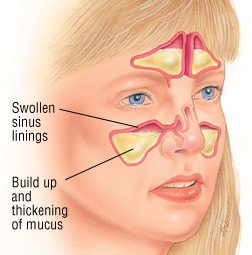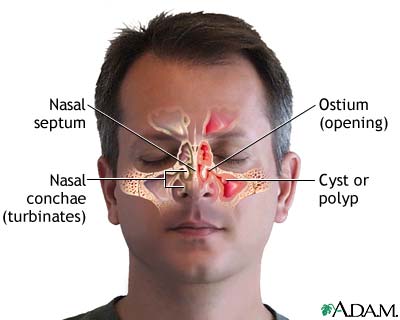
A healthcare provider can diagnose acute sinusitis based on your symptoms and perform a physical examination. Your healthcare provider can also perform a diagnostic test called a rhinoscopy. The procedure uses a thin, flexible tube to examine the inside of your nose. If you experience facial pain, fever, and pus drainage from the nasal passages, you probably have acute or chronic sinusitis. In addition, you should be aware of any allergies or asthma you may have.
Your physician may order an imaging test to determine the extent of the infection, as well as to rule out other possible causes. A CT scan will help your physician identify other underlying factors, such as allergies or structural defects. A bone biopsy may also be necessary to determine if fungus has penetrated the bone. These tests are not painless and should be interpreted by a medical professional. The physician will likely refer you to a neuroradiologist if the symptoms persist for a long period of time.
If you experience any of these symptoms, visit a doctor immediately. A doctor can prescribe medication or do an X-ray to help determine the cause of your symptoms. Your healthcare provider will also recommend a CT scan to determine the specific type of infection. If the condition persists or does not respond to treatments, you should seek medical attention as soon as possible. Your primary care provider can refer you to a specialist for diagnosis and treatment.
If you experience any symptoms of a sinus infection, it is important to see a doctor. Your doctor can determine the source of your symptoms and recommend appropriate treatment. If you are taking immunosuppressant medications, you should seek medical attention immediately. Without prompt treatment, a fungal sinus infection can be fatal. If you have a weakened immune system, you should get frequent checkups to stay healthy. You can also take over-the-counter medications such as ibuprofen and acetaminophen.

If you notice any of these symptoms, you should see your doctor to find out what is causing your symptoms. Your healthcare provider will be able to determine the cause of your condition and prescribe appropriate treatment. If your symptoms last more than a week, you should seek medical help as soon as possible. Your doctor may be able to prescribe medication to treat your symptoms. A sinus doctor may also prescribe a prescription medication to help treat sinus inflammation.
The most important thing to do if you have a sinus infection is to consult your doctor or website ticketbox.co.th. A healthcare professional can determine the cause of your symptoms and prescribe appropriate treatment. Patients taking medications that suppress the immune system should seek medical attention immediately. In addition, people taking immunosuppressant medications should also seek medical attention. An invasive fungal infection can cause serious problems. If left untreated, it can even lead to death.
In addition to visiting your doctor, you will also need to take a detailed medical history. Your healthcare provider will perform a physical exam to check your throat, nose, and sinuses. They may even use an endoscope to examine your sinuses. If your symptoms are severe, your doctor may refer you to an ENT specialist. If symptoms persist, antibiotics and anti-inflammatory drugs should be taken. Your doctor may recommend a CT scan.
The first step in treating a sinus infection is to see a healthcare professional. They will ask you questions about your medical history and how severe your symptoms are. They may also perform a physical exam to assess the severity of your symptoms. After learning more about your symptoms, your health care professional will prescribe an appropriate treatment. They may also prescribe a saline nasal spray to ease the discomfort caused by a sinus infection.
Although the symptoms of sinus infections are similar, they can be different. A physician will ask you about your symptoms and perform a physical exam to determine the most likely cause of your condition. A doctor may also perform a CT scan to determine whether there is any swelling of the sinuses or a blocked flow of mucus. Once you have a diagnosis, you can start treatment right away. Your doctor will advise you on what to do.